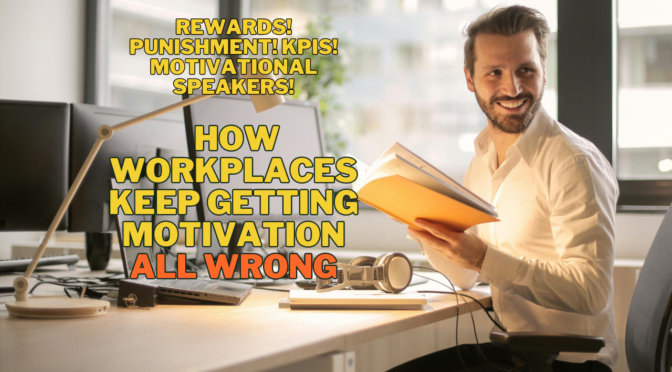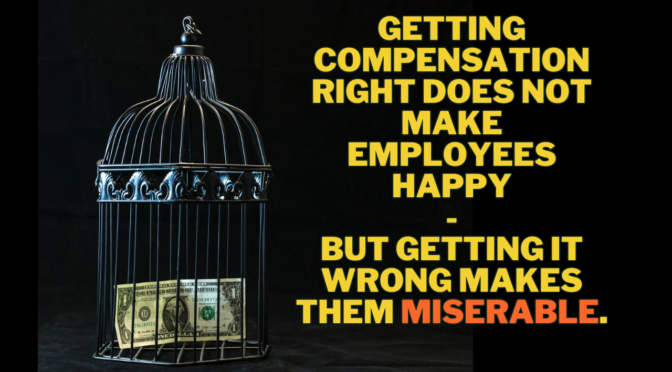New site design, thanks to Pernille. Is she good or is she good?
-
Learning styles
While webresearching about learning, I found some info on learning styles. It seems there are different basic approaches to learning.
(more…)
-
Quote
Work is fast replacing religion in providing meaning in people’s lives. Work has become how we define ourselves, it is now answering the traditional religious questions: Who am I? How do I find meaning and purpose? Work is no longer just about economics; it’s about identity.
– Benjamin Hunnicutt, historian and professor at the University of Iowa at Iowa City
-
Book review: Gung ho!
This book, subtitled “Turn on the People in Any Organization”, is a really quick read, but it contains some pretty good ideas nevertheless.
The whole book is a a story of an iron plant in America, that’s in deep trouble. Profits are down, and the employees are hostile towards the new CEO that’s just been hired.
The CEO talks to an indian, and learns the spirit of the squirrel, the way of the beaver and the gift of the goose.
(more…)
-
My project
My project (Projekt Arbejdsgl?de) is moving along nicely. I’ve created a website for it here, and the first two workshops will be held in february.
If you have any comments on the website, or would like to join a workshop, please let me know.
-
Book review: Feel the fear and do it anyway
This book is about the fears that we all have in our lives to some degree. Fear of failing. Fear of succeeding. Fear of decisions. Fear of aging, of loss or of helplessness.
The books basic premise is, that your aim should not be to get rid of your fears. You should feel your fear, but not let it stop you from doing things you really want to do.
The book describes three levels of fear. The first level is the actual event that you fear – say losing you job. The second level is the deeper fear, triggered by the first level – eg. rejection (if being fired would make you feel rejected). Beneath that on the third level there’s only one fear: The fear that you won’t be able to cope. If you knew in advance that you could take it, there would be nothing to be afraid of. So all fear reduces to fear of not being able to cope.
(more…)
-
Book review: Down and out in the magic kingdom
Cory Doctorow has written his first novel. It’s a science fiction story, set in the Bitchun society about 100 years from now, where the world has turned disneyesque.
I liked the story, and I loved the neat, far out or just plain weird ideas and concepts. What’s most remarkable about the book though, is that it’s available either in a dead tree version or for free on the net. Yep, you can download the whole book to your PC or palm or just read it in the browser as I did.
-
Book review: The customer comes second
The title of this book is a deliberate provocation. After endless messages about putting the customer first, Hal Rosenbluth, CEO of Rosenbluth International, says you should “put your people first and watch’em kick butt”. (Rosenbluth International is a world leader in corporate travel management, with over 5.000 people in more than 50 countries).
The same principle works so well for Southwest Airlines, as described in the book “Nuts!“. And indeed there seems to be many similarities between the approaches taken by Southwest and Rosenbluth, and the results they achieve.
Both companies enjoy huge financial success. They both lead their markets in quality of service and customer satisfaction. They both have a motivated, caring work force, willing to go very far for their customers, each other and the community. They both care deeply about people, and strive to make work a place where people learn, have fun and grow. They both hire people who have the right personality, and then train them to have the right skill.
-
Exercise: Talking stick
Talking stick is an excellent way to promote better and deeper dialogue. If you need to slow down the pace of a discussion, to make room for more reflection and listening, consider trying it. It’s really simple. Basically, you find a stick (or some other object), and whoever holds the stick can speak, everybody else listens. When you’ve finished talking, you can put down the stick (for somebody else to pick up), or you can hand it to somebody, allowing that person to speak.
It sounds almost too simple to work, but it does. It usually has several effects:
People listen more to what is being said, in stead of waiting for their turn to speak.
People don’t talk too much. If you’re constantly holding the stick, you’ll notice, and pass it on.
The pace of the discussion slows.
There’s less disagreement.There’s a detailed description of talking stick here.





